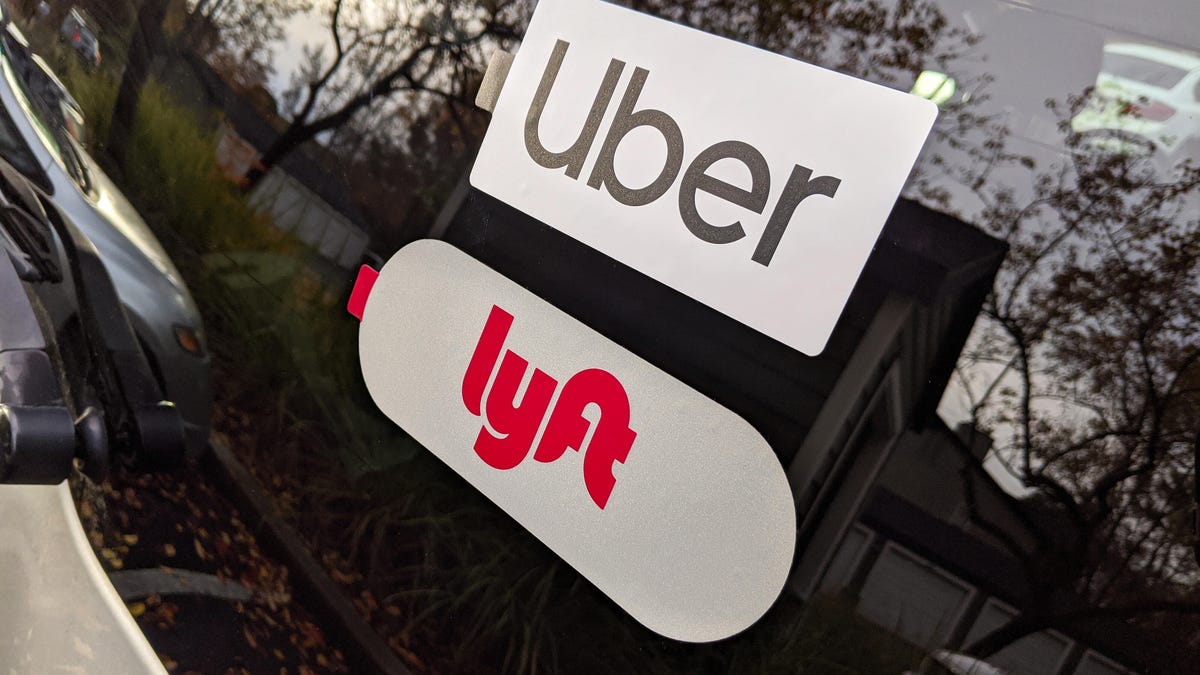Uber and Lyft need to make drivers employees, appeals court rules
California has become ground zero for gig worker status as a major lawsuit and a nearly $200 million ballot measure campaign heat up.

Uber and Lyft are fighting to keep their drivers classified as independent contractors.
In the latest of a back-and-forth battle between the state of California and Uber and Lyft, an appeals court ruled Thursday evening that an injunction issued against the two ride-hailing companies over the status of their drivers was an appropriate measure.
The injunction was issued in August by Judge Ethan Schulman of the San Francisco Superior Court, who ruled that the ride-hailing companies must start classifying their drivers as employees in the state. The judge allowed the companies 10 days to appeal the ruling, which they did.
The First Appellate District court in San Francisco heard arguments from the companies last week and issued its ruling Thursday siding with Schulman. The appeals court said in its 74-page ruling that there was an "overwhelming likelihood" Uber and Lyft are violating California law AB5. That law requires some employers that use independent contractors to reclassify their workers as employees and provide more worker benefits.
"Not only is this a victory for the tens of thousands of Uber and Lyft drivers working to put a roof over their heads and food on the table, this ruling is about fairness, making it clear that these companies must stop shifting their costs onto the taxpayers while their CEO's profit," Mike Feuer, Los Angeles City Attorney, said in a statement.
The injunction stems from a lawsuit against Uber and Lyft filed by the state of California in May in conjunction with the city attorneys from San Francisco, Los Angeles and San Diego. The suit says the companies "exploited hundreds of thousands of California workers" by classifying drivers as independent contractors and are violating AB5, which took effect in January.
As this lawsuit works its way through the courts, Uber, Lyft and other gig economy companies have sponsored a state ballot measure campaign with nearly $200 million to bring the issue to voters. Proposition 22 aims to create an exemption for the companies to AB5 and allow them to continue classifying their workers as independent contractors.
Julie Wood, a Lyft spokeswoman, said the appeals court ruling makes the vote on Proposition 22 "more urgent than ever." The company said it's considering other legal options, including an appeal to the California Supreme Court.
An Uber spokesman said the company is also considering its appeal options and emphasized the vote on Proposition 22. "Rideshare drivers will be prevented from continuing to work as independent contractors, putting hundreds of thousands of Californians out of work and likely shutting down ridesharing throughout much of the state," he said.
The No on Proposition 22 campaign and many ride-hail drivers are marking the appeals court ruling as a win. But they, too, note the importance of voting on the ballot measure on Nov. 3.
"We've had enough of the threats from Uber and Lyft to shut down our right to paid sick leave, unemployment insurance, workers' compensation, and a living wage," Steve Gregg a ride-hail driver and organizer with driver group Gig Workers Rising. "Corporations who cheat the law and spend $200 million so they can keep exploiting drivers like me shouldn't be able to buy their own rules."
The appeals court ruling on Thursday won't have an immediate effect. The court gave the companies at least a 30-day stay without requiring any changes to driver status.

